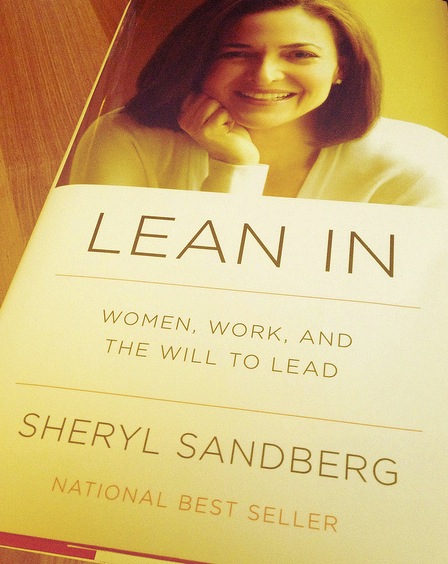Please help rabble.ca stop Harper’s election fraud plan. Become a monthly supporter.
After reading Lean In by Sheryl Sandberg, I couldn’t stop comparing myself to her. After all, Sheryl Sandberg is almost my age. We were both born in 1969. We grew up in a middle-class family and went to business school.
But perhaps the similarities stop there.
Sheryl Sandberg became one of the most powerful and successful women in the U.S. During her ascent, she had powerful mentors — for instance, Larry Summers, Secretary of the Treasury under the Clinton administration — who believed in her, helped her and pushed her forward, despite her doubts and tumbles.
So despite the fact our paths seem to have been quite similar, at least from the beginning until we finished university, there are plenty of differences between the two of us. In Tunisia, I never had a mentor. Nobody believed in me, except my parents. No Tunisian “Larry Summers” hired me or pushed me forward to succeed. To the contrary, I was implicitly pushed aside because I didn’t conform to the mainstream society moulds waiting for me. The Tunisian government of the time did all it could to strip me of my rights to a scholarship because I was wearing a veil. I was considered a fundamentalist.
When I came to Canada, I was in a way given a second chance, a new opportunity to build a new life and show my true self. As a new immigrant I had to not only be good but extremely exceptional to be noticed. I had to always double my efforts to be recognized as a woman with the potential to succeed and make a difference around her.
I never had the luxury to lean back. I always looked forward, climbed ladder after ladder to find closed doors. I understood that no matter how far and how hard you “lean in,” when you are starting from below the bottom you will never reach the summits of the world in which Sheryl Sandberg lives.
And as an immigrant Arab-Muslim woman, I can assert that I was starting from very low. In Canada, I had mentors; one of them was my thesis director at McGill University. He believed in me and defended me when others wanted to put obstacles in front of me. But contrary to Sheryl Sandberg, he wasn’t trying to find me a job in the Bank of Canada or in the Department of Finance; he was trying to keep me in the program. My battle is one of survival, not of ambition. Later, I had Alexa McDonough, former leader of the New Democratic Party of Canada, stand beside me and my children when the Government of Canada let my husband down. Once again, I wasn’t fighting to become a successful leader in my company or a brilliant politician; I was fighting for my rights to be treated with dignity and justice. I was fighting for the bare minimum.
In contrast to Sheryl Sandberg, I didn’t have a nanny to take care of my kids when I went out to defend my husband’s rights. I didn’t have a partner, as he was far away in prison. I had my mother who stood beside me all the way and if I didn’t have her I wouldn’t have been able to go outside and leave my children at home.
My path isn’t an exception. There are many other women in Canada and in the U.S. who “lean in” every day as single mothers, as Aboriginal, immigrants, refugees, as underprivileged members of society. Their battles aren’t recognized. Some think of them as lazy, marginalized, or perhaps not adequately integrated.
In my opinion, their battles are as important, if not more important, than Sheryl Sandberg’s. These women are working so hard to bring food to the table and find affordable daycare for their children. Sheryl Sandberg doesn’t speak about them in her book. They seem to be invisible to her eyes.
Sheryl Sandberg is talking to a small, restricted “girls’ club.” And I admit, it is a fine discussion. In theory, I agree with most of it. But it forgets all the other women who are in another world. Not the world of Silicon Valley or Capitol Hill or fancy lawyer’s Manhattan towers. They are the women who work in the fields, in the factories, in the offices, in hospitals, in schools. They are the women who do not have nannies to feed and clean their kids, or wealthy husbands to pay their bills. Sheryl Sandberg’s book is excellent — but only for women who are like her! It gives them a moral boost. It motivates them to climb the corporate ladder from being a manager to becoming a CEO. However, her book, for many other women, me included, means nothing. It is another fairy-tale to add to the list.
Monia Mazigh was born and raised in Tunisia and immigrated to Canada in 1991. Mazigh was catapulted onto the public stage in 2002 when her husband, Maher Arar, was deported to Syria where he was tortured and held without charge for over a year. She campaigned tirelessly for his release. Mazigh holds a PhD in finance from McGill University. In 2008, she published a memoir, Hope and Despair, about her pursuit of justice, and in 2011, a novel in French, Miroirs et mirages.
Photo: ITHACA WONG/flickr



